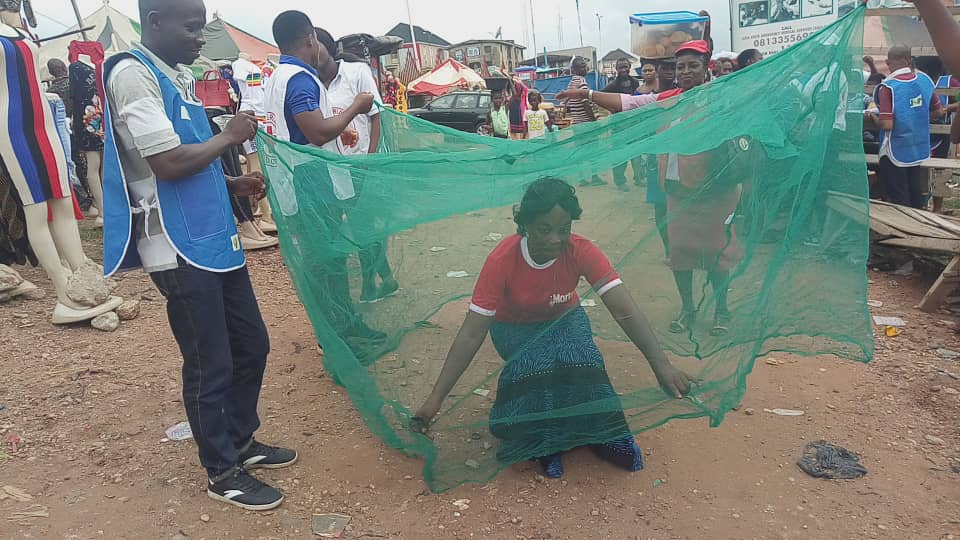
Defeating Malaria: A Choice We Can Make
“Whatever you did for one of the least of these brothers and sisters of mine, you did for me.” (Matthew 25:40, NIV)
By Bob Noziglia, CCIH Advocacy Manager
Malaria has been one of the most enduring epidemics in humanity’s history. There were an estimated 249 million cases of malaria in 2021, resulting in over 608,000 thousand deaths. Sub-Saharan Africa shoulders a disproportionately high share of the global malaria burden, with nearly 94 percent of cases (233 million) and 95 percent (580,000) thousand) deaths attributable to the region. Tragically, nearly 80 percent of all malaria deaths in Sub-Saharan Africa are among children under the age of five.
For areas where malaria is not prevalent, the disease has a far-reaching (albeit quirky) impact on society and culture. The popular cocktail, the Gin and Tonic, has its origin in South America, where the bark of the Cinchona tree was used as a treatment for malaria (quinine).
Malaria surveillance activities conducted by the Christian Health Association of Malawi (CHAM). Photo courtesy of CHAM.
The US Responds
The US Centers for Disease Control (CDC) headquarters is located in Atlanta, Georgia, to better fulfill its primary mission: to prevent malaria from spreading in the United States. Additionally, among the first appropriations bills passed by the Continental Congress was for quinine to help Colonial troops resist malaria in their fight for independence against Great Britain.
As deaths from malaria continued to increase, there was another call for Congressional leaders to help make a stand against malaria. Congress answered by creating the framework for a multilateral response, The Global Fund to Fight AIDS, Tuberculosis, and Malaria. This funding mechanism – launched in 2002 – provided resources for countries to design and implement national plans to address malaria.
Soon after, the President’s Malaria Initiative was created to provide a bilateral response, utilizing the global reach of USAID and preventative tools like insecticide-treated bed nets, antimalarials, and rapid diagnostic tests developed by the CDC to address malaria.
These combined initiatives have saved an estimated 11.7 million lives and prevented 2 billion malaria infections since 2000.
Leveraging Faith Communities
Contributing to that success are the many efforts of the faith community. Churches and religious institutions are often used as places to distribute insecticide-treated bed nets and instructions on how to use them. Given many of these faith-based organizations have the trust of their community, like Isaiah 58 Care Foundation featured in the video above, they can galvanize the community against malaria. Amaka Uja and her team at Isaiah 58 Care Foundation host many events to educate their community on malaria and how to prevent it. The top photo shows the team distributing bed nets.
Having achieved so much and saved so many, the global community now faces a decision. Like many decisions in life, there are two paths. The easiest choice is that we can bask in the success against malaria and maintain the status quo, and tell ourselves that we live in an imperfect world and that people dying from a preventable and treatable disease is regrettable – but acceptable.
What Choice Will We Make?
We can ignore the growing signs of resistance to the insecticide used in bed nets and indoor residual spraying by the mosquitoes that spread malaria and the parasite itself becoming resistant to antimalarial medication. We can ignore the impact of climate change, which is disrupting weather patterns, allowing mosquitoes to move to areas and populations to spread the disease.
Or, we can make a different choice. The harder choice, which is to recognize that our success against malaria is only as sustainable as our vigilance. We can refocus our efforts to address malaria and utilize the tools available to us, such as this guide to engaging faith communities in vaccine uptake. Provide robust funding to properly roll out new tools like a malaria vaccine to complement the usage of bed nets and insecticide spraying. We can redouble our efforts to educate about the disease and the signs of infection and ensure equitable access to healthcare with trained healthcare workers.
Then we can live in a world of our own making: a world without malaria.
